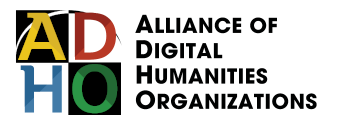Misión
El Equipo Especial se compromete a ayudar a ADHO a desarrollar un plan que permita avanzar los 9 compromisos establecidos en la Declaración sobre Black Lives Matter, Racismo Estructural y Violencia Sistémica, tal como se describe al inicio de esta declaración.
Esta misión no excluye la contratación de consultores. El proceso puede comprender la compensación de individuos por su tiempo y energía adicionales, por ejemplo, contratar a un estudiante becario para prestar asistencia en determinada iniciativa o actividad. Posibles iniciativas incluyen desarrollar una encuesta para la comunidad de humanidades digitales para informar las prioridades del Equipo Especial u organizar talleres o sesiones de entrenamiento que incluyan a los miembros del equipo de trabajo junto con el EB y COB para que exista un marco de referencia y bases comunes para discusiones futuras. Ya que las estructuras existentes forman parte del problema, el COB prefiere evitar el ser demasiado dirigente e invita al Equipo Especial a establecer sus propios parámetros y modos de funcionamiento, en diálogo con y con el apoyo del Grupo de Trabajo Anti-Racismo Estructural en la medida en que así lo decida.
El Equipo Especial deberá:
- Operar con relativa independencia del EB y COB de ADHO, los cuales proveerán información, apoyo y consultoría en tanto el equipo especial lo requiera, pero sin manejar sus operaciones.
- Expandir contactos más allá de los actuales miembros de ADHO.
- Decidir roles y responsabilidades dentro del equipo especial.
- Decidir sobre un posible cambio de nombre.
- Decidir su ámbito de trabajo considerando las limitaciones del propio ámbito de operaciones de ADHO como organización internacional profesional de organizaciones profesionales.
- Decidir sus modos de involucramiento y reporte.
- Operar de manera transparente, reportando trimestralmente sus actividades al Equipo de Trabajo y la comunidad de ADHO.
- Operar por dos años, después de los cuales deberá ser prolongado, eliminado o reestructurado.
Membresía
El término inicial del Equipo Especial será de dos años, al cabo de los cuales, tomando en cuenta la recomendación del propio Equipo Especial, el COB de ADHO decidirá si desea prolongar dicho término (si los miembros del Equipo Especial están dispuestos) o tomar alguna otra acción tal como convertirlo en un comité permanente o eliminarlo.
Una lista de miembros será proporcionada próximamente.
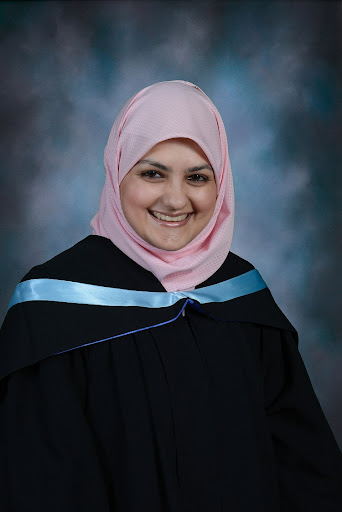
Fatima Ahmed
I’m a M.Ed candidate at Lakehead University, and a full-time grade 5&6 teacher in Kangirsuk (Quebec, Canada). I have grown up with the social justice movement and started engagement with digital humanities in 2017, when I attended the July 2021 DHSI hosted in Victoria, B.C. You can find a full CV at: https://teachercandidatemsahmed.weebly.com/cv.html
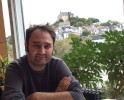
Erdal Ayan
I (he/him) am a PhD candidate in the department of Computational Linguistics at University of Kassel. I have a research interest in data/text mining, sentiment analysis (opinion mining), topic modeling, network analysis (community detection), web development. I worked as an academic assistant at Herder Institute from 2017 to 2020. I am the founder of Digital Humanities Turkey (DH Turkey). Currently I am working as an academic assistant/IT for Friedrich Schiller University Jena.
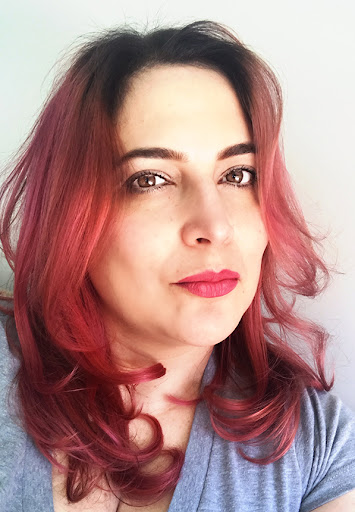
Barbara Bordalejo
I am a textual critic, editor, and digital humanist with a background in English literature. I currently work at the Humanities Innovation Lab at the Univesity of Lethbridge. Since 2014, I have worked on EDI initiatives in DH by carrying out research, writing articles, organizing conferences and workshops focusing on intersectional inclusion. I am the current chair of Global Outlook :: Digital Humanities.
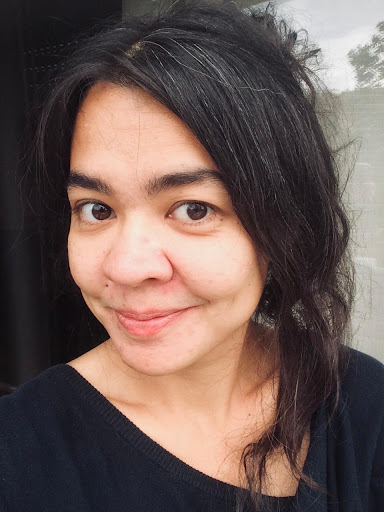
Alexandra Núñez (Alex)
I am a PhD student at Technische Universität Darmstadt (Germany) and part of Digital Humanities Darmstadt. I have been involved in DH projects (2014-2017) on automatic detection and classification of metaphors. From 2017 to 2019, I served as a reviewer for the ADHO Digital Humanities conferences. As to why I volunteered: Digital humanities are not an ivory tower. The more social reality is digitally mediated, the more likely it is that only certain (linguistic) narratives are represented inside and outside academia. It is time to collectively create a public awareness of the fact that, in addition to the discursively dominant calculated explicitness, fuzziness, ambiguity, and colorful diversity must also have their discursive place.

Dibyadyuti Roy (Dibya/দিব্য)
IITF Liaison to the Constituent Organizations Board
I am the current Vice-President and founding member of India’s first DH collective, the Digital Humanities Alliance for Research and Teaching Innovations (DHARTI). I lead numerous public outreach initiatives for DHARTI and have spearheaded India’s first DH Conference in 2018 (#DHAI2018), the inaugural DHARTI Twitter Conference (#DHARTITwitterConf) as well as the recently concluded #DHARTI2022 Conference on The Digital Divides: Discontents, Debates and Discussions. The goals of ADHO’s Intersectional Inclusion Task Force form the core of my own work: of deterritorializing DH beyond privileged subjectivities as well as the interconnected structural inequities of race, caste, class and gender. I have previously been a faculty member at the Indian Institute of Management (IIM) Indore as well as in India’s first Masters and PhD Program in DH at the Indian Institute of Technology (IIT) Jodhpur.
From May 2022 I will be joining the University of Leeds as a Lecturer in Cultural Studies, Media Studies and Digital Humanities.
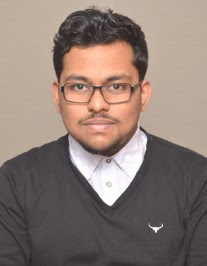
Samya Brata Roy (সাম্যব্রত)
I (he/him) am a PhD student in the Department of Humanities and Social Sciences at IIT Jodhpur and a HASTAC scholar (2021-23). My interests lie in and around Literary Studies, Digital Humanities, Remediation, Pedagogy and Promoting Access via Networks.
Other than this task force, my other roles include filling in as a Technical Advisory Member with Humanities Commons, an Executive Committee member with Digital Humanities Alliance for Research and Teaching Innovations, a transcriber with The Canterbury Tales Project, a Liaison with The Association for Computers and the Humanities and as a founding member of Electronic Literature India.

Ashley Sanders
I am Vice Chair of Digital Humanities at UCLA and former Chair of the ADHO Publications Committee (2016-2020). As a comparative colonial historian and digital humanist, my research engages in restoring data destroyed by colonization, as well as recovering and highlighting voices and stories of those marginalized in the past and present. My courses ask students to critically examine data and narratives for evidence of bias and to describe how power shapes both data and primary source creation/preservation and the stories told with them, and I am excited to serve on ADHO’s Intersectional Inclusion Task Force to examine and address obstacles that stand in the way of a more inclusive global DH community.
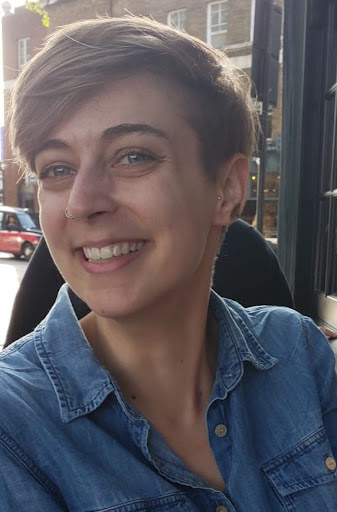
Kristen Schuster
I (they/them) joined the Department of Digital Humanities at King’s College London in 2016 after completing my doctoral work at the University of Missouri iSchool. I have two primary areas in my teaching and research: gender and identity narratives within the digital humanities and the interactions between data, metadata, and digital cultural heritage.
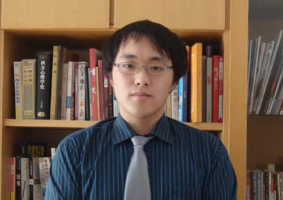
Shu Wan
Shu is currently a doctoral student in history at the University at Buffalo. He is passionate about digital humanities, pedagogy, and their potential in providing the more inclusive & interactive learning environment.
Former Member of IITF

Maurizio Lana (Spring 2022)
I teach Library and Information Science at Università del Piemonte Orientale (Italy). I have been involved in the field of digital humanities since 1989. My research interests in these last years are focused on information literacy and on the role of IA systems in the production of books. I volunteered for this group because if we as scholars have a critical stance on our subjects and draw conclusions about them, we also must have a critical stance on the functioning of our society and decide for appropriate actions.
Presupuesto
El Equipo Especial tendrá un presupuesto de trabajo de 7,000 euros.
Dichos fondos pueden ser empleados para los siguientes propósitos:
- Contratar consultores que dirijan talleres para el Equipo Especial, el Grupo de Trabajo, el COB, el EB o la comunidad general de ADHO.
- Contratar consultores o estudiantes con experiencia apropiada para producir, ejecutar y analizar encuestas o entrevistas.
- Proveer asistencia en la preparación de reportes y recomendaciones.
- Otros propósitos determinados en consulta con el Grupo de Trabajo.
- El Grupo de Trabajo aprobará la distribución de fondos dispuesta por el Equipo Especial.
- Las solicitudes de fondos adicionales requerirán la aprobación del COB de ADHO como parte del presupuesto de 2023.
